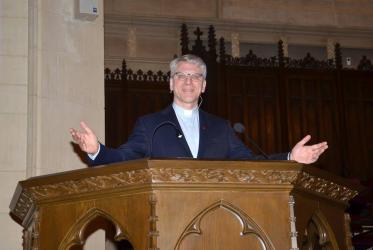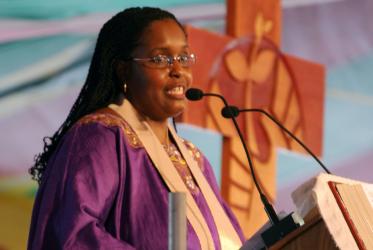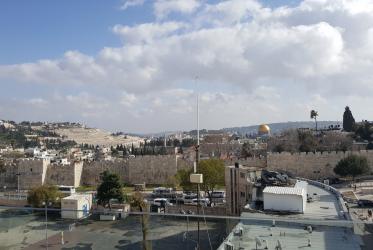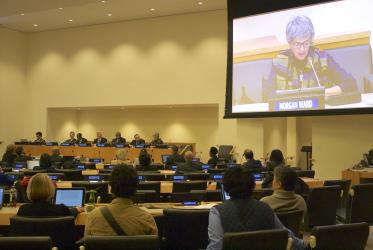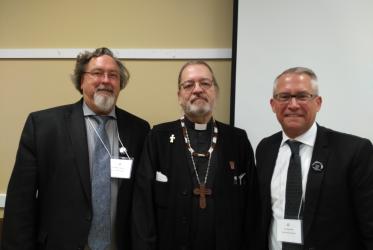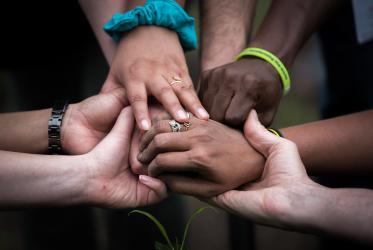Displaying 101 - 120 of 266
WCC general secretary: “We believe in God’s love”
31 March 2019
Funeral celebrates life of Rev. Robina Winbush
26 March 2019
Turning mercy and compassion into action
04 March 2019
Devotional guide commemorates enslaved African peoples
07 February 2019
#WCC70: Children in the Ecumenical Movement
20 December 2018
Canadian churches celebrate WCC’s 70th anniversary
27 November 2018
#WCC70: Canadian Quakers and the birth of the WCC
22 November 2018
Pan African Women of Faith issue fervent Call to Action
20 November 2018
US Catholic bishops approve pastoral letter against racism
19 November 2018
Roundtable for Peace on the Korean Peninsula convenes in Atlanta
14 November 2018
WCC general secretary dismayed at shooting in California
09 November 2018
Racial justice issues at forefront in meetings with UN experts
01 November 2018
EKD delegation, other visitors grace WCC
26 October 2018
How can you help refugees?
11 October 2018

